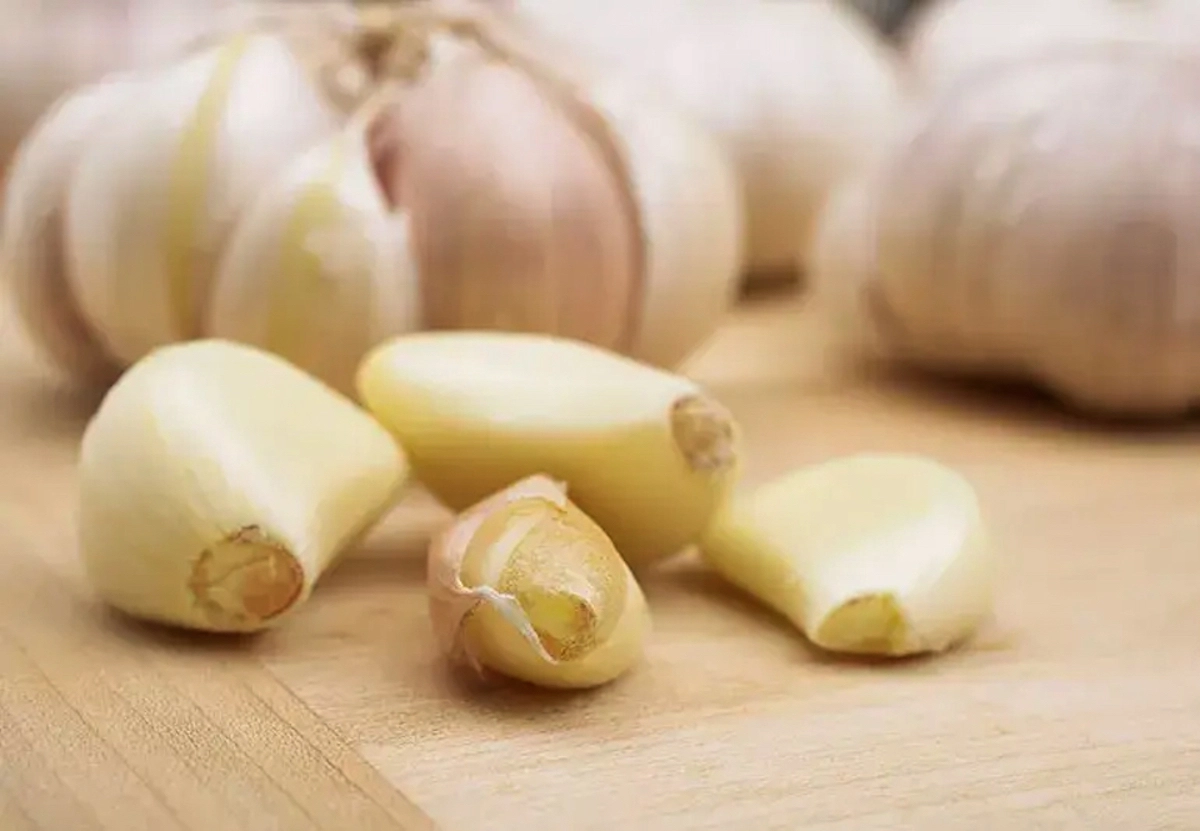
It could help with hypertension, but skip the supplement and enjoy garlic in your food instead
We’ve ascribed medicinal properties to garlic for thousands of years. You can find references to the herb-like vegetable throughout human history. It’s been used to treat everything from tuberculosis to snake bites. In fact, garlic was so important to some ancient cultures that archaeologists discovered bulbs of it in Egyptian pyramids. Our forebears may have been a bit overenthusiastic, but they weren’t wrong to treasure the plant. Garlic tastes good—and it’s good for you. Garlic has anti-inflammatory, antioxidant, and antibiotic properties. Studies suggest it can boost your immune system. It might even be a useful addition to cancer-treatment plans.
This little plant has a lot to offer. Is it possible that it could also lower your blood pressure?
What effect does garlic have on blood pressure?
There’s some evidence to suggest that garlic can lower your blood pressure. But according to cardiologist Ashish Sarraju, MD, it’s still pretty limited.
He’s not alone in that assessment. For example, a recent review study demonstrated that vitamin B12 levels may influence garlic’s effectiveness at lowering blood pressure. But what we eat is personal and specific. That makes it hard for scientists to determine the impact of a single food, especially on a complex medical condition like high blood pressure. As a result, many studies on the relationship between garlic and hypertension are poorly designed.
If garlic does indeed lower blood pressure, we’re still not completely sure how. Our best guess is that our red blood cells respond to the sulfur in garlic, creating nitric oxide (NO) and hydrogen sulfide (H2S) gasses. These compounds relax and expand our blood vessels.
How much garlic should you take?
Garlic has a lot of health benefits, but how much of the stinky stuff should you be ingesting?
You’re probably already getting enough. While some studies show that taking a garlic supplement can reduce your blood pressure, Dr. Sarraju doesn’t think the data are strong enough to recommend it.
But he does recommend cooking with garlic. In his words, “one of garlic’s biggest values is that it makes an evidence-based diet—like the DASH diet—tastier.” If you’re trying to make heart-healthy choices, like reducing your sodium intake or eating more veggies, garlic could be your secret weapon. While it might be a secret weapon, it’s not a silver bullet.
Hypertension (high blood pressure) is complicated. When it comes to lowering blood pressure, diet is just part of the equation. Some of the other lifestyle changes doctors might recommend include quitting smoking, drinking less, exercising regularly, getting a good night’s sleep, reducing stress and in some cases, losing weight.
Garlic is great for flavoring your food, but it can’t change how you live your life. Unless, of course, you’re a vampire.
Is it safe to take?
The jury is also still out on the safety of garlic supplementation. In fact, the U.S. Food and Drug Administration (FDA) hasn’t approved the use of garlic for medicinal purposes. They also don’t regulate the sale of garlic pill supplements. That means you can’t be sure of the dosage or quality of supplements or concentrates you buy over the counter.
Dr. Sarraju doesn’t recommend garlic supplements. There just isn’t enough evidence to support it. But does he think garlic is dangerous in high doses? There’s some evidence that in high doses, garlic can interfere with blood clotting. While that would be particularly concerning for people who already take blood thinners, Dr. Sarraju isn’t yet convinced by the research.
Concentrated garlic could be harmful to people with certain health conditions. We know, for example, that folks with stomach issues like gastroesophageal reflux disease(GERD) and irritable bowel syndrome (IBS) see their symptoms worsen when they eat garlicky food. That’s why people on the low-FODMAP diet need to avoid it, at least for a while.
While it’s rare, some people are allergic to garlic. That’s another reason to avoid concentrated garlic in any form until you’ve spoken with your doctor.
There’s not enough evidence to support garlic supplementation, but there also isn’t enough evidence to suggest that garlic is dangerous. It’s best, then, to enjoy it as you always have—in your food, with a breath mint chaser.
Can garlic replace medication?
Even if you’re enjoying garlic across all of your meals, don’t give up on your prescribed medications. There’s no evidence to suggest that you can use garlic in place of blood pressure medication. And even if there was, it’s important to remember that doctors don’t prescribe those drugs in isolation. As Dr. Sarraju puts it, “It’s hard to replace a conversation with your doctor and a multifaceted focus on lifestyle and medications with a supplement.”
Diet and lifestyle changes are important. In fact, Dr. Sarraju describes hypertension control as 70% lifestyle and 30% medication. Still, that 30% is important, too, especially as we can’t control factors, like genetics and certain environmental conditions, that influence our blood pressure.
You’d bring more than garlic to a showdown with a vampire, so don’t rely on garlic alone to reduce your blood pressure. The stakes, so to speak, are too high.
Source: https://health.clevelandclinic.org/garlic-for-blood-pressure










